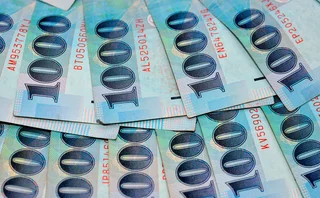
Small coffee producers in Nicaragua access risk markets
The first international price insurance transaction for small coffee producers in Latin America was implemented last week in Nicaragua, with support from the World Bank’s Commodity Risk Management Group (CRMG), a unit of the International Task Force on Commodities Risk Management in Developing Countries (ITF), which was established in 1999 to find solutions to commodity price volatility in regional markets.
Fondo de Desarrollo Agropecuario (FondeAgro), an autonomous entity of the Ministry of Agriculture in Nicaragua, supported the transaction, which was placed into the international risk markets by Volcafe, a Swiss coffee trading company that provided logistical and cost support.
“Now a small farmer will be able to reap the benefits of connection with the futures and options markets,” said Melinda Cuellar, executive director of FondeAgro.”
“Local small producers find themselves at a competitive disadvantage to large producers with international links that can obtain credit on good terms and hedge their price risk,” said John Nash, manager of the CRMG at the World Bank. “We hope better access to commodity risk management instruments can help level the playing field."
During the past two years, coffee prices dropped to their lowest levels in 30 years — 100-year lows if adjusted for inflation – due to worldwide oversupply.
Deteriorating economic conditions for coffee producers have been particularly precipitous in Central America, as the drop in the price of coffee also coincides with a drought. Central American countries have witnessed a drop in revenue from coffee exports of US$1 billion over the past two years. Exports for the 1999/2000 crop year were about US$1.7 billion;, last year’s (2000/01) dropped to US$950 million, and this year (2001/02) they are estimated to be US$700 million.
Only users who have a paid subscription or are part of a corporate subscription are able to print or copy content.
To access these options, along with all other subscription benefits, please contact info@risk.net or view our subscription options here: http://subscriptions.risk.net/subscribe
You are currently unable to print this content. Please contact info@risk.net to find out more.
You are currently unable to copy this content. Please contact info@risk.net to find out more.
Copyright Infopro Digital Limited. All rights reserved.
As outlined in our terms and conditions, https://www.infopro-digital.com/terms-and-conditions/subscriptions/ (point 2.4), printing is limited to a single copy.
If you would like to purchase additional rights please email info@risk.net
Copyright Infopro Digital Limited. All rights reserved.
You may share this content using our article tools. As outlined in our terms and conditions, https://www.infopro-digital.com/terms-and-conditions/subscriptions/ (clause 2.4), an Authorised User may only make one copy of the materials for their own personal use. You must also comply with the restrictions in clause 2.5.
If you would like to purchase additional rights please email info@risk.net
More on Foreign exchange
Will Taiwan lifers ramp up FX hedging amid tariff turmoil?
As TWD remains strong against the US dollar, Taiwanese life insurers are still poised to act
Deutsche Bank takes AutobahnFX on the open road
Proprietary trading platform sets out new workflow-based approach to collaborating with venues
Dealers bullish on Bloomberg chat interface for FX markets
Service expanded its API offering to integrate broker chats into banks’ engines for cash FX pricing late last year
LCH expects to boost deliverable FX clearing with new adds
Onboarding of dealers and link-up with CLS could swell interbank deliverable FX clearing volumes
Does no-hedge strategy stack up for mag seven mavericks?
At Amazon, Meta and Tesla, the lack of FX hedging might raise eyebrows, but isn’t necessarily a losing technique
Amazon, Meta and Tesla reject FX hedging
Risk.net study shows tech giants don’t hedge day-to-day exposures
Intraday FX swaps could signal new dawn for liquidity management
Seedling market could help banks pre-fund payments in near-real time and reduce HQLA requirements
Natixis turns on the taps in flow trading
French bank boosts flow business, balancing structured solutions capabilities







